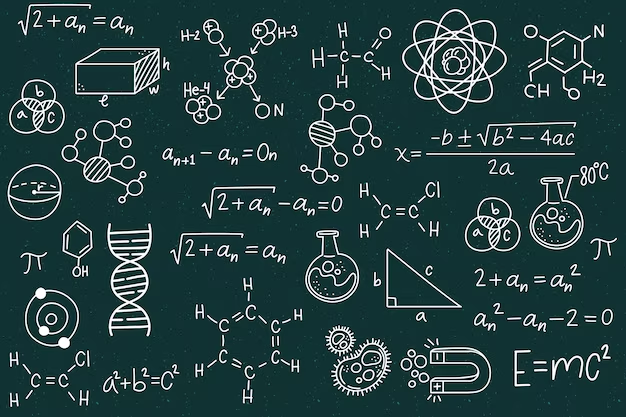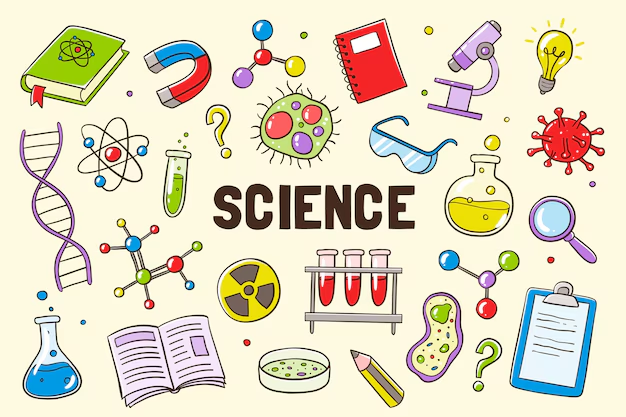The future of science is an exciting frontier, marked by groundbreaking discoveries and innovations that will fundamentally alter the way we live, work, and interact with the world around us. With technological advancements rapidly changing every field, the next wave of scientific breakthroughs promises to unlock new possibilities in areas like healthcare, space exploration, artificial intelligence, renewable energy, and more. As we continue to advance our understanding of the universe, science will continue to shape the future in ways that were once thought impossible. In this article, we’ll explore the emerging technologies and breakthroughs that are likely to define the future of science.
The Rise of Artificial Intelligence (AI) and Machine Learning
Artificial Intelligence (AI) is already transforming various industries, but the future holds even greater promise. AI and machine learning are reshaping scientific research by automating data analysis, optimizing complex models, and accelerating the discovery process. In healthcare, AI-driven algorithms are being developed to detect diseases earlier than ever before, assist in personalized medicine, and even predict outbreaks of infectious diseases.
In the field of space exploration, AI will play a crucial role in processing vast amounts of data collected from space missions. AI algorithms can analyze the data from telescopes, satellites, and rovers to identify patterns that humans may miss. This allows for more efficient exploration and a deeper understanding of the cosmos.
Breakthroughs in Biotechnology and Gene Editing
One of the most transformative areas of science is biotechnology, particularly with the development of gene editing technologies like CRISPR-Cas9. These technologies have already made it possible to precisely alter DNA, which opens up new possibilities for treating genetic disorders, enhancing crops for better yields, and even eradicating diseases.
In the future, gene editing could lead to cures for diseases that were once thought incurable, such as cystic fibrosis or Duchenne muscular dystrophy. Additionally, CRISPR technology holds the potential to create genetically modified organisms (GMOs) that can thrive in harsh environmental conditions, helping to address global food shortages caused by climate change.
However, with these advancements come ethical concerns. The ability to modify genes raises important questions about the potential consequences of altering human DNA and the risks of unintended consequences. These challenges will require careful consideration and regulation as biotechnology advances.
Quantum Computing and Its Impact on Science
Quantum computing represents a paradigm shift in the way we approach complex problems. Unlike traditional computers that process information as binary code (1s and 0s), quantum computers leverage the principles of quantum mechanics to perform computations at speeds unimaginable with classical computers.
In the future, quantum computers could revolutionize fields like cryptography, material science, and drug development. For example, quantum simulations could allow scientists to model complex molecules with unprecedented accuracy, leading to the development of new, life-saving drugs and materials. Quantum computing also holds the key to unlocking advances in artificial intelligence, improving machine learning algorithms and processing power.
However, there are still significant challenges to overcome before quantum computing becomes widely accessible, such as the need for stable qubits and error-correction techniques. Despite these hurdles, progress in the field is accelerating, and quantum computing is poised to play a major role in shaping the future of science and technology.
Renewable Energy and Environmental Technologies
As climate change continues to threaten our planet, the need for sustainable, renewable energy sources has never been more urgent. Emerging technologies in solar, wind, and energy storage are helping to shift the world away from fossil fuels and toward cleaner, more sustainable options.
One of the most promising areas in renewable energy is the development of advanced solar panels and wind turbines that are more efficient and cost-effective than ever before. Additionally, energy storage technologies like solid-state batteries and advanced grid systems are being developed to store renewable energy for use when the sun isn’t shining or the wind isn’t blowing.
Moreover, environmental technologies are also advancing, with innovations in carbon capture and storage (CCS) aiming to reduce greenhouse gas emissions from industrial processes. These technologies could play a vital role in mitigating the effects of climate change, helping to restore balance to ecosystems that have been severely impacted by human activities.
The Future of Space Exploration
Space exploration has made incredible strides over the past few decades, and the future promises even more exciting developments. With private companies like SpaceX, Blue Origin, and others making significant advancements in reusable rockets and spacecraft, space travel is becoming more accessible and affordable.
In the future, space exploration will likely lead to the establishment of human colonies on the Moon and Mars. Advancements in life-support systems, energy generation, and sustainable habitats will make it possible for humans to live and work in space for extended periods. This will open up new opportunities for scientific research and resource extraction from asteroids and other celestial bodies.
Additionally, the search for extraterrestrial life will continue with missions aimed at exploring distant planets, moons, and exoplanets. The discovery of microbial life on Mars or another planet could change our understanding of life itself and our place in the universe.
FAQs
- What is AI’s role in scientific discovery? AI helps scientists analyze massive datasets, optimize models, and predict outcomes, accelerating the pace of discovery in fields like healthcare, astronomy, and materials science.
- How does CRISPR gene editing work? CRISPR allows scientists to make precise changes to DNA, which can be used to treat genetic diseases, improve crops, and create genetically modified organisms.
- What is quantum computing? Quantum computing uses quantum mechanics principles to process information at incredibly fast speeds, offering the potential to solve problems too complex for traditional computers.
- How will renewable energy impact the future? Advances in solar, wind, and energy storage technologies will lead to cleaner, more sustainable energy sources, helping to reduce reliance on fossil fuels and combat climate change.
- What challenges does space exploration face? Space exploration faces challenges like developing life-support systems, ensuring sustainable habitats, and overcoming the cost and complexity of sending humans to distant planets.
- How could biotechnology change healthcare in the future? Biotechnology advancements like gene editing and personalized medicine could lead to cures for genetic diseases, more effective treatments, and customized healthcare based on an individual’s DNA.
- What are the ethical implications of emerging technologies? As new technologies emerge, ethical concerns such as privacy, genetic modification, and the impact on society must be carefully considered to ensure responsible use.
Conclusion
The future of science holds incredible promise, with emerging technologies and breakthroughs poised to redefine our understanding of the world and our place in it. From AI and quantum computing to biotechnology and space exploration, the next generation of innovations will have profound effects on every aspect of our lives. However, these advancements come with their own set of challenges, particularly in terms of ethics and regulation. As we look toward the future, it is essential to ensure that these technologies are used responsibly and for the benefit of all.
Key Takeaways
- Emerging technologies like AI, quantum computing, and biotechnology are reshaping the future of science.
- Innovations in renewable energy and environmental technologies are critical in addressing climate change.
- Space exploration is opening new frontiers for human habitation and scientific discovery.
- Ethical considerations must guide the development and application of these new technologies.
- The future of science holds the potential to solve some of humanity’s most pressing challenges and unlock new possibilities for innovation.




